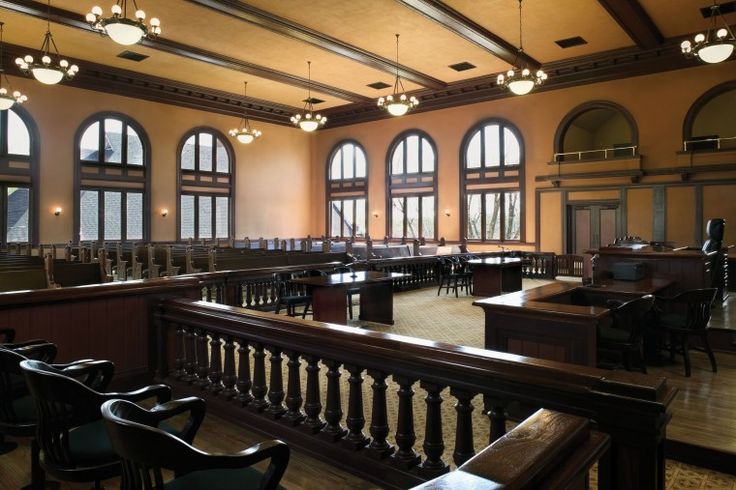Article by Ruth B. Cowan
(based on a paper delivered at the Law & Society Annual Meeting June 2nd, 2011)
Research assistance provided by Colleen Normile
Women’s presence on the bench in South Africa began in 1994 with the end of apartheid. As Justice Yvonne Mokgoro observes in the documentary Courting Justice, during the hundreds of preceding years “ I guess there was no thought that women could also serve.” More accurately, what kept women off the bench were the thoughts that women, unsuited by nature, could never serve. The post apartheid Constitution, setting forth a human rights-based constitutional democracy, dismissed these notions and mandated the consideration of women when making judicial appointments.
The appointments were to be made to what was now to be an independent judiciary. The apartheid judiciary had not been independent—its charge was to assure the validation of apartheid’s legislation, executive regulations and official actions. Yet, these courts were to be retained, as were the judges and court personnel whose record was hostile to the very human rights which the judiciary was now charged to protect. The Constitution did create one new court; i.e., the Constitutional Court. It was charged with and limited to considering cases in which constitutional issues were raised.
Given the continued engagement of the apartheid judges—all but two of whom were white males and almost all of whom were energetic in support of apartheid’s oppressive and repressive laws and brutal actions, the transformation of the judiciary by race and gender was and continues to be verbally embraced as a high priority. Central to the transformation was to be the appointment of Africans, Coloureds, Asians and women.
In contrast to the assertions in the United States that judges function like baseball umpires, a frequently expressed and undisputed justification for the appointment of those previously excluded by racism and sexism was precisely so that they would provide perspectives previously absent— these perspectives were heralded as essential to advancing the Constitution’s promises. In providing previously absent perspectives the African, Coloured, Asian and women judges were expected to add value—they were expected to make a difference in the decisions rendered.
Since 1994 women have been appointed. Seven of them are featured in the documentary. Courting Justice. Frequently at screenings, the question is asked, “What difference have they made?”
The women have made a difference. They have inspired other women to aim for judicial appointments, they have raised the comfort level of women appearing in court, and they have—through their extra-judicial volunteer commitments—worked to increase access to justice. But, have they made a substantive difference; i.e., have they affected South Africa’s jurisprudence?
The StudyReported Here
It is this question which the study reported here embarked on answering. The study should be understood as preliminary even to the first step in what will require many more before an answer can be definitive.
The study focuses only on the women Constitutional Court Justices. There were two among the first eleven Constitutional Court Justices appointed in 1994: Yvonne Mokgoro and Kate O’Regan. In 2005 they were joined by a third woman: Bess Nkabinde.
From 1994 – 2009 the Constitutional Court issued judgments in 356 cases. Trying to capture the Justices “voices,” this study chose to scrutinize those cases in which one or more of the women “spoke” in a majority opinion, a concurring opinion or a dissenting opinion. This resulted in scrutinizing 130 cases—a little more than a third of the cases decided. In 59 or 58% of the 130 cases, one of the three women Justices wrote the court’s opinion. In addition to the 59 majority opinions written by one of the women, they wrote 52 concurring opinions and 19 dissenting opinions.
The decision to focus on the Constitutional Court Justices, rather than the judges serving in other courts, perhaps impedes identifying the jurisprudential impact of women because of the special characteristic of all those appointed to this court: all of the judges had evidenced strong commitments to human rights before being considered for appointment; all are in accord that their assignment is to lay the foundation for this new democracy by creating a human rights jurisprudence.
Where “Women’s Issues” are Involved
Even in this strong human rights environment, the women nevertheless differed from all but one of their male colleagues when cases involved issues clearly related to women’s rights or to matters of particular relevance to women’s experiences..
Three cases make this point:
S v. Jordan and Others
Volks NO v. Robinson and Others and
Masiya v. Director of Public Prosecutions Pretoria and Another.
In Jordan the issues relate to the criminalization of prostitution and brothels; in Robinson the issue involves the widow’s benefit entitlement for a woman, not legally married, living in a life long relationship, and in Masiya the issue involves the definition of rape. In the Jordan and Robinson cases the women Justices were in dissent; in the Masiya case the three women were among the majority.
S v. Jordan and Others
The law criminalizing prostitution targets only the prostitutes and not their customers. The law also criminalizes brothels. Considered here is only the former and only some of the arguments made.
The majority held that in targeting the prostitutes and not also their customers, the law is not discriminatory. It held that the law is gender-neutral; that customers are liable to prosecution under separate statutes; that the state in targeting the supplier—i.e., the prostitute, is choosing an effective way to curb prostitution; that the fact that the prostitutes are overwhelmingly female does not render the law discriminatory based on gender; and that prostitutes have other economic options.
The dissent by O’Regan and Justice Albie Sachs acknowledged that prostitution has “an impact on the quality of life,” and that the Legislature, therefore, can regulate prostitution “so long as it does not limit other fundamental rights in a way that would not be justifiable in an open and democratic society… (read more – download PDF of entire article)
*Ruth B. Cowan is a Senior Research Fellow at the Ralph Bunche Institute for International Studies, Graduate Center, City University of New York
Colleen Normile is a law student at the City University of New York School of Law


0 Comments